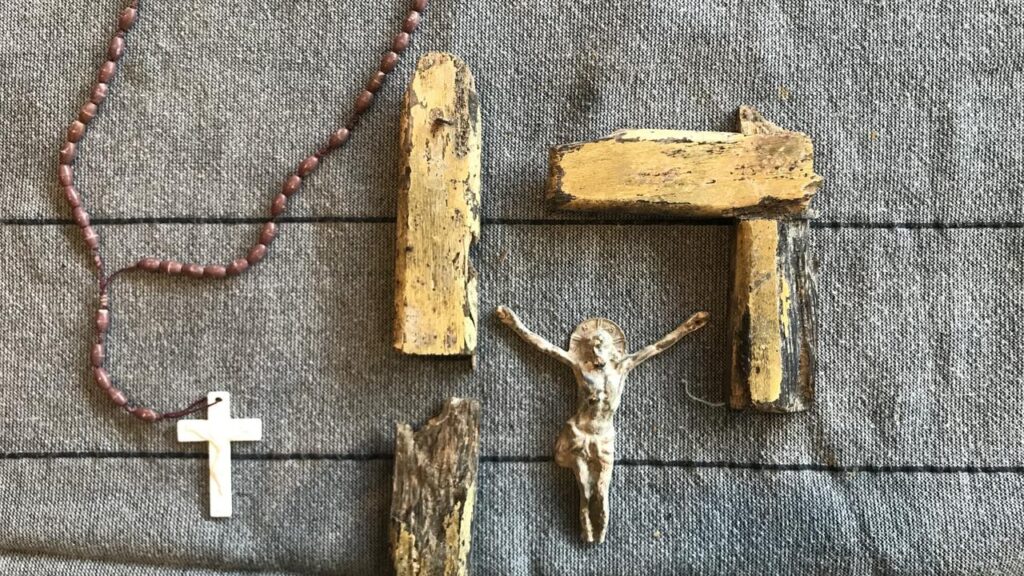Interviewer: What would you say was religious about your mother?
Greg Jenkins: Everything that she did was through Christianity.
The question “What kind of woman was Annapuranee Jenkins?” has been ringing in my head. Why? Because I write about inquests, a court-centred process whose goal is to find the cause of death of a person. And because I cringe when I hear the word si-mati, which means “deceased.”
Referring to Anna as si-mati during the hearings is one of the things Anna’s son Greg mentioned when I asked him to tell me what has disappointed him in the last five years.
Anna Jenkins is the 65-year-old formerly Malaysian Australian grandmother who disappeared in Penang on 13 December 2017, whose remains were located in Penang 30 months later, and whose inquest began in Penang in March this year.
I’m aware of two other Malaysian inquests which have been reported broadly and internationally. Yet, from those reports, I’ve learned very little about them as people. The main facts about them are that they were foreigners, girls, teenagers – and therefore newsworthy.
The first is Ivana Smit, the 18-year-old Dutch model who died on 7 December 2017 after she fell from the 20th floor of an apartment in KL.
The second is of Nora Anne Quoirin, the 15-year-old French-Irish schoolgirl whose body was found on 13 August 2019, ten days after she disappeared from the resort in Negeri Sembilan where she was holidaying with her family.
The third is of Anna Jenkins, who was in Penang with her husband on one of their regular visits to her 101-year-old mother who was in a residential care home.
Anna’s story “as a person” seems a lot less newsworthy. I say so because of another disappointment Greg noted.
Greg said the police chose to disbelieve the report his father made the next day about his wife’s disappearance. They didn’t closely question him and record his statement, didn’t closely examine his phone records, didn’t challenge his report. They just chose to treat Anna as a self-disappeared.
When I asked Greg what he thought caused the police to make those choices, he said a senior police officer had told him they had no incentive to look for Anna. Why? Because Anna was not young, not white, not rich, not dangerous, not drug related, not irreligious. Not newsworthy.
That last descriptor, “not irreligious,” made me ask Greg what role religion played in his mother’s life. He said hers was a life devoted to God and therefore to others. He told me five stories to explain what he meant.
Gold chain. Once, he saved for a year to buy a gold chain, with a crucifix, for his mother. He didn’t see her wearing it. He asked her why. She said she’d given it away. He fumed. He asked why. She said she didn’t need material things. She said she knew a depressed and discouraged migrant family. She gave the chain to them, to encourage them. Greg said that family messaged him this month, to wish him well and to tell him how much they treasured the gift his mother gave them.
Bouquets of flowers. When Anna received a bouquet of flowers, she would dismantle it and distribute the flowers. Greg told of an occasion when he gave her a bouquet. She immediately split it into four portions. And with him accompanying her, she went to give the flowers to people and families who would be encouraged by them.
Rosary and crucifix. Some years ago, Greg was given money to go on holiday. He chose to travel in Europe. One of the places he chose to go to was Vatican city, the geographical centre of the Catholic Church (It’s next to Rome). He chose to go there because he wanted to buy a gift for his mother. It was a very expensive gift. He bought her a rosary blessed by the Pope. Later, his father made a wooden crucifix to put on it. Anna never went anywhere without it.
Praying for others. Anna would often drive around, “on the lookout.” She would stop and pray when she saw a need and help if she could. Sometimes, she would drive to accident scenes and pray for the victims and families, her hands clasping the blessed rosary and crucifix. On Saturdays, Greg often plays football. Since her disappearance, people often come up to him and tell him their remembrances of Anna and show him objects they associate with her.
House of refuge and prayer. Anna rented a house and operated it under the name “Follow me.” The living room was for prayer – anyone could drop in for some rest, reflection, and company. The rooms were often occupied by needy persons – often the homeless and refugees.
Not newsworthy? Self-disappeared? Huh?
To learn more about Rama, click here.


